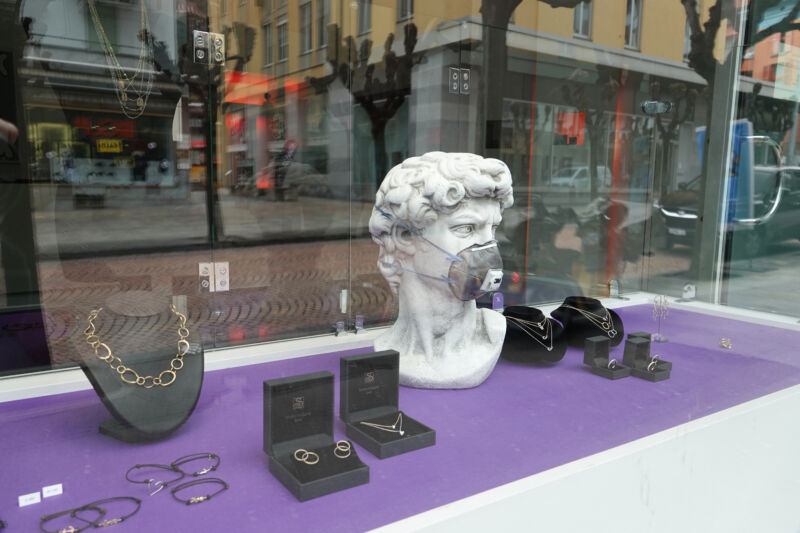3M sues price-gougers who used Amazon to sell masks at 1,800% markup

3M—which manufactures N95 filtration masks that have been in high demand since the COVID-19 pandemic began—is suing merchants who used Amazon to sell 3M and counterfeit masks for more than 18 times their standard price.
A group of third-party merchants on Amazon “operated an illegal scheme to advertise and sell counterfeit, damaged, deficient, or otherwise altered respirators” to customers, 3M alleges in the complaint (PDF), filed in federal court in California.
3M has drastically increased its production of N95 respirator masks, the company says, but has kept its pricing between $0.63 and $3.40 per mask, depending on the model. The resellers in the suit, however, were allegedly selling a model that has a typical list price of $1.27 for for an average of $23.21 per mask, more than 18 times higher than 3M’s price.
Amazon has already taken down the listings in question, 3M notes in the suit, but due to the way Amazon’s third-party marketplace works, “banned” goods and sellers pop back up all the time. This case is likely to be no different, 3M claims, writing that the defendants have a history of launching “multiple front entities to perpetuate their unlawful activities” and adding that the defendants will probably keep doing it “until they are enjoined by this court.”
3M seeks financial penalties against the resellers but says any monetary awards it receives “will be donated to charitable COVID-19 relief efforts.”
The company has filed more than a dozen similar lawsuits in recent months, The Wall Street Journal notes. “The lawsuits are one tool in our tool kit to go after this kind of activity,” Kevin Rhodes, deputy general counsel for 3M, told the WSJ.
Price gouging for critical protective gear became rampant on US online platforms in February and March as the spread of the novel coronavirus caused a massive spike in demand. Suppliers couldn’t keep up, and so prices rose sharply for goods such as disposable gloves, masks, and hand sanitizer.
eBay outright banned listings for masks, hand sanitizers, and disinfectant wipes in early March amid rampant price-gouging and potential fraud. Amazon did not follow suit, instead turning to algorithmic detection and consumer complaints to remove problem listings.
More than 30 states’ attorneys general late in March asked online retailers, including Amazon, to take stronger, more proactive action against price-gouging merchants. “Rather than playing whack-a-mole to stop price gouging after it has already occurred,” the attorneys general wrote, “online retail platforms should prevent unconscionable price increases from occurring in the first place by creating and enforcing strong policies.”
https://arstechnica.com/?p=1682665